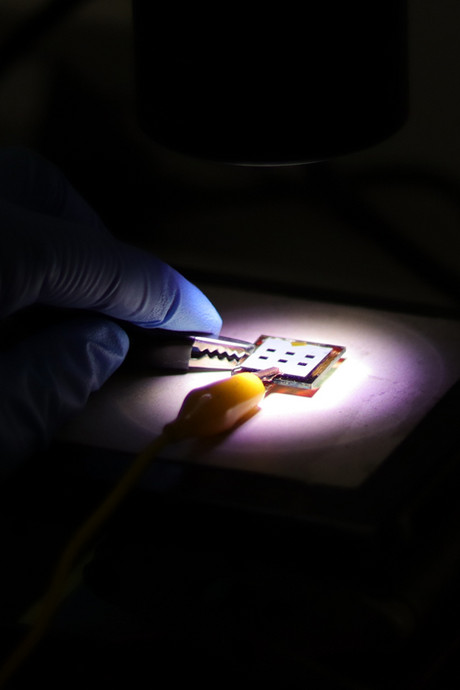


In traditional funding schemes, grant proposals are evaluated by review panels which judge the merits of both the scientific idea and the applicant. Typically, such review panels make their decisions by consensus. While this procedure is time-tested and widely used, it may exclude a certain class of breakthrough ideas that can seem unripe, too risky and even naive at first glance. The Villum Experiment Programme is designed for exactly those ideas.
With the Villum Experiment Programme Villum Foundation is ready to take a chance and support the ideas which have a limited chance of succeeding, but hold great potential if they do. The ideas might hold, e.g., the potential to answer a long-standing question in science, bring a transformative understanding of a central topic, nurture a fruitful new research area or create the foundation of a novel method or technology.
The Villum Experiment is designed to support untested potential breakthrough ideas by providing grants suitable for an explorative phase. The application and evaluation processes underpin ideas in their early phase and aim to facilitate unconventional thinking.
Definition of technical and natural sciences
Villum Foundation supports technical and natural sciences embedded in Danish universities and research institutions. The research can be curiosity-driven or aiming at societal challenges. In all cases, it must have a clear scientific objective.
In relation to ERC’s evaluation panels Villum Foundation supports as a rule ”Physical Sciences and Engineering” (PE1-PE10) and parts of “Life Sciences” (LS1-LS3, LS8). Cases may occur where the research falls partly outside the categories.
Villum Foundation is positive towards interdisciplinary initiatives with a core in technical and natural sciences.
Projects with a purely commercial focus are not supported.
We do not support
Health or veterinary research, i.e. research focused on the health of humans and animals, including nutrition, medicine, biomedicine, pharmacology and research within diagnostics and methods for examination and treatment.
Furthermore, applicants affiliated with departments whose main scientific focus is within these areas (including university health departments, hospitals, the Danish Cancer Society, DTU Health Tech and SDU Health Informatics and Technology) are not eligible to apply and will receive an administrative rejection.
The proposals are pre-screened by Villum Foundation’s secretariat and the working group for technical and natural science to check that they comply with the conditions stated above. The anonymous proposals which pass the pre-screening are distributed among the four scientific review sub-panels according to the proposal’s research area as indicated by the applicant. The terms of reference of the panel can be found below along with the review sheet and an overview of the assessment and selection process. The panel members do not see the CVs or support letters and do not know the identities of the applicants.
To increase diversity and respect the uniqueness of outliers, each panel member is provided with a decisive vote which she/he can use only once. The panel member has the option to cast the decisive vote for an application which he/she finds to be particularly promising/valuable and therefore deserves the highest priority.
The reviewers pass their evaluations on to the foundation and the applications are ranked according to their scores, taking the decisive votes into account.
As a final step, the CVs of the highest ranking applications are screened by Villum Foundation’s working group for technical and natural science and the foundation’s secretariat. The screening team checks the researcher's level of expertise within the area of the proposed project. The panel’s ranking is maintained, but applications that fail the screening test are disqualified. A final list of fundable applications is recommended to the board who makes the grant decision.
Note: In previous rounds of funding, all applicants put forward by the review panel passed the final screening process.
The application must contain the following four documents:
The documents above must be submitted as four separate pdf files. To preserve anonymity, it is important that you remove all personal information from the file names and metadata of the proposal and the budget. Any additional documents submitted will not be taken into consideration.